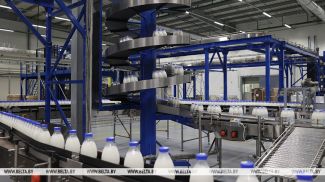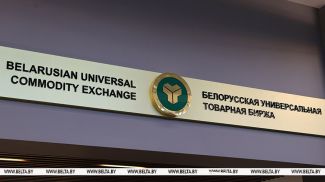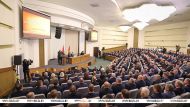MINSK, 28 September (BelTA) – Yuri Ambrazevich, Deputy Minister of Foreign Affairs of the Republic of Belarus, and Hua Liu, IAEA Deputy Director General and Head of the Department of Technical Cooperation, signed the Belarus Country Program Framework (CPF) for the period of 2022–2027 in Vienna, BelTA learned from the Permanent Mission of Belarus to international organizations in Vienna.
The deputy minister thanked the IAEA for the support in strengthening the nuclear and radiation safety regime, including in the context of the launch of the Belarusian NPP.
The parties discussed the state and prospects for further development of technical cooperation, expert support for nuclear energy and non-energy uses of nuclear technologies in Belarus. The deputy minister highlighted the importance of assistance from the IAEA in the development of the Belarusian school of international nuclear law and the use of the domestic potential of radiation medicine in the Rays of Hope initiative by the IAEA director general.
The framework program is the basis for technical cooperation between the country and the agency. A CPF is the frame of reference for the medium-term planning of technical cooperation with the IAEA and identifies priority areas where the transfer of nuclear technology and technical cooperation resources will be directed to support national development goals. The first program for Belarus was signed in 2003 and was updated in 2007.
The new cooperation program for 2022-2027 builds on the achievements and experience of past technical cooperation efforts, takes into account Belarus' new status as a country that has started operating its first nuclear power plant, and aims to further contribute to national social and economic development priorities.
A number of areas of cooperation with the IAEA have been identified to include further capacity building and improvement of nuclear and regulatory infrastructure to ensure safe, reliable and sustainable operation of the Belarusian nuclear power plant; return of radioactively contaminated areas to normal social, economic and environmental conditions; improvement and expansion of the application of advanced nuclear health techniques; development of nuclear science, technology and research, including industrial and environmental applications of isotope and radiation technologies, and also nuclear knowledge management.
The document was signed at the IAEA headquarters on 27 September.













